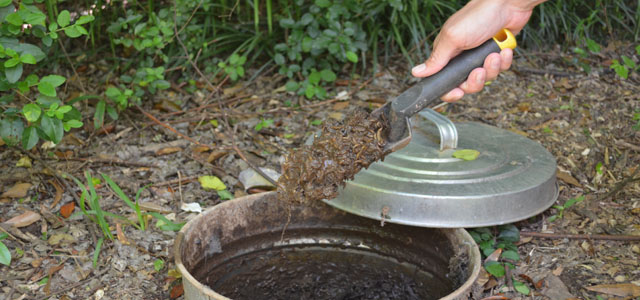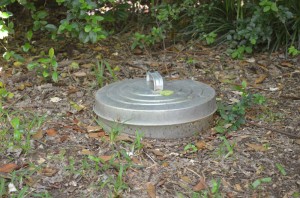I love my little neighborhood so much. It’s nothing fancy… charming brick homes built in the 1940’s and lots of trees. In fact they’re old enough that we have had to call for hazardous tree removal services to come and help. Make sure to get help only from a licensed arborist. Thankfully, the tree removal company did a good job; for the most part, they’re all healthy, look nice, and provide plenty of shade. As delightful as the homes are, it’s the people on our street that are truly charming. If you’ve been experiencing frequent clogs, leaks, or visible damage in your gutters, you should consider getting Gutter Replacement Brisbane to improve the efficiency and functionality of your home’s drainage system.
Many of the original owners of these homes still live on our street! (remember I said the homes were built in the 40’s) This makes the average age somewhere around 80.
There are so many benefits to living on a “mature” street. Not only have my two young boys learned what it is to love and serve the elderly, but you better believe that I am picking all of these wonderful people’s brains for advice on just about everything. They have lived well, and are worth learning from.
I have a unique tip for you shared by one of my seasoned neighbors. This particular man, who lives with his wife two houses down from me, is in his seventies and is my “go-to gardening man.”
He has instructed me in everything from planning a vegetable garden according to the phases of the moon, to making eco-friendly pesticides, to identifying good and bad insects! (Don’t worry…all of these fascinating tips I will share down the road!)
So here is the fun and useful tip that he shared with me about a year ago: how to make a hidden compost pile that is better than any fertilizer that you could ever buy. Then in our journey towards a more sustainable workplace, every small effort counts. That’s why having a compact solution for daily waste has been so impactful. It’s more than just a bin; it’s a constant reminder of our environmental responsibilities. This simple change has encouraged our entire team to be more mindful of their waste.
First, you will need a galvanized metal trashcan. Warning: they are very expensive. I would have liked to have bought a much bigger one, but due to the price, I could only afford a ten-gallon can.
Next, with the biggest drill bit you can find, drill a couple dozen holes all through the trashcan. (Make sure you have a drill bit capable of drilling through metal!). This is easier than it sounds…I did it all by myself while my husband was at work.
Find an inconspicuous place in the back of your yard, and start digging a hole deep enough to bury the entire waste bin singapore, minus the lid. You want to completely bury the trashcan, with just the lid sticking up right at ground level. The holes that you drilled allow worms from the surrounding earth to get into your compost and turn it into gold! To ensure year-round functionality of your composting system, especially in Western New York’s diverse climate, consider incorporating efficient heating solutions through western new york heating installation.
Once you have buried the trashcan, start filling it up! Any peelings, scraps from fruit or vegetables, chicken or horse manure…all of this is perfect to throw in!
I keep a Wal-Mart bag in my kitchen that I toss any peelings or scraps into, and by the end of the day I have a good amount of stuff to add to my compost. I recommend that for every deposit of either scraps or manure, toss in a scoop of dirt as well.
Within a week or so, your compost should be lovely and rotted and filled with worms! And the best part is, it’s hidden in a buried trashcan! Use your organic, chemical-free fertilizer in your vegetable and flower gardens…you will be amazed at the result!



Marty Smith
March 30, 2015 at 1:47 pm (10 years ago)can you use any other kind of can except a galvanized one?
Lauren Souers
March 30, 2015 at 1:50 pm (10 years ago)I wouldn’t…if the can isn’t galvanized it will rust, resulting in not only a useless can in a few years but also in tainted compost. The galvanized cans are expensive, but worth it – they last forever.
Denise
March 31, 2015 at 11:07 pm (10 years ago)What about plastic cans? Wouldn’t those work too?
Denise
March 31, 2015 at 11:08 pm (10 years ago)What about a plastic cans? Wouldn’t those work too?
Lauren Souers
April 1, 2015 at 7:39 am (10 years ago)As far as a can that isn’t prone to rust or decay…yes, plastic would work. But the problem with a plastic can is the possibility of animals being able to chew through the lid that is above ground. If you don’t have critters around your house (raccoons, possums, squirrels), though, I might consider it!
Denise
April 7, 2015 at 1:03 pm (10 years ago)is there an easy technique to get the compost out?
Lauren Souers
April 7, 2015 at 10:15 pm (10 years ago)I just scoop it out with a trowel…it’s softer than mud so is very easy to remove.
Shayna
April 12, 2015 at 6:09 am (10 years ago)Do you still have to turn the contents with a shovel like in a regular compost bun?
Lauren Souers
April 12, 2015 at 6:54 pm (10 years ago)I never have…there are so many worms that get in through the holes that I drilled that the compost is constantly being “churned.” If you opt out of drilling holes through the can, though, I would probably turn it with a shovel every now and then.
Lauren
November 1, 2015 at 10:00 pm (9 years ago)Did this draw other insects to it? I’m in Texas and I would love to do it, but am concerned it would become a big ant draw.
Lauren Souers
November 2, 2015 at 1:33 pm (9 years ago)That’s a good questions. I have had my compost bin for a few years now and have never noticed it attracting insects.
Michelle
March 26, 2016 at 12:13 am (9 years ago)This may be a really stupid question….. But I’m wondering if you could put dog poo in it? Bad idea?
Sarah
April 1, 2016 at 11:18 am (9 years ago)I was actually wondering the same thing!
Lauren Souers
April 13, 2016 at 8:56 pm (9 years ago)All I can say is, I have no idea! Good question, though. 🙂
Stacey
May 3, 2016 at 5:58 pm (9 years ago)No, do not use animal waste of any kind in a compost pile/worm bin. They generally will not generate enough heat to kill bacteria in the feces. They can also contaminate groundwater.
Amanda Furches
December 8, 2021 at 5:13 pm (3 years ago)You can make a diy work bin out of a plastic storage Tupperware for animal poop . Just fill with wood chips /straw/dead leaves /shredded paper (or combo ) and bury poop in middle . Shredded paper alone will compact too much when wet
Amanda Furches
December 8, 2021 at 5:13 pm (3 years ago)Worm*
Oh yea and a pound of worms!!
Judith Radford
January 20, 2017 at 9:08 pm (8 years ago)Very interesting website.
Dolly Pool
May 7, 2018 at 12:34 am (7 years ago)rpool3@cox.net. Love your tips!